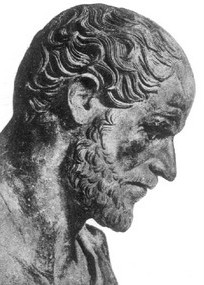
I read the following piece this morning . . . I have historical stuff emailed to me every morning, it's better than looking at the news . . . I already know what happened yesterday . . . but 2000 years ago? I gotta be reminded . . . I posted this because it hits the nail on the head from where I stand (I love mixing metaphors
Virtuous Men of Greece and Rome
H.I. Marrou on the etymology of the Roman virtues
"Instead of wealthy people, almost all the people we know, from Homer to Hercules to Pericles to Euripides and Phidias, were excellent at something, or had received first prize at some kind of contest, including artistic ... theatrical ... or oratorical ... contests, or shone through their politically just ... or militarily ingenious ... examples.H.I. Marrou, in his A History of Education in Antiquity, digresses into the origins of several Latin words:
www.ecnet.net/users/big0ama/GreekCulture.html "Greek Cultural History"
Latin | Original Meaning | Standard Meaning | |
| laetus | well-manured ground | joy | |
| felix | fertility of the soil | happiness | |
| frugi | the profits | virtue | |
| egregius | beast separated from his herd | fame | |
| putare | prune | think | |
Farming was central to early Roman life and its virtues, hard work, sacrifice, devotion, piety, and frugality, were the virtues of the early Romans. They honored custom which the family was perfectly suited to convey. Besides devotion to the fields and gods, Romans obeyed the father, the pater familias, with mater coming in a close second. Each family was different, each inculcated different values, but all families were also loyal to the state. Although there's an emotional similarity between John F. Kennedy's "ask not what your country can do for you," and Horace's "dulce et decorum est pro patria [literally father-land] mori," in practice we Americans, who show little respect for the institution of family, don't ask "what we can do for our country."
In many ways we have much more in common with the individualist, aristocratic ideal of the Greeks, for whom Achilles' petulant refusal to lead his troops into battle almost cost the Greeks the Trojan War. For the Greeks, individual honor and glory was more important. They prized virtue, arete, beauty and goodness, kalos kai agathos. Aristocracy meant rule by those with greatest merit. [www.ecnet.net/users/big0ama/GreekCulture.html "Greek Cultural History: On Aristocracy" and www.fas.harvard.edu/~gmoritz/papers/s2.html "Virtue and the Proper Political Individual in Antiquity" 11/03/98]
. . . OK, now for something a little different but the same . . . here's a Roman quote on virtue that I think highlights the viciousness fundamental in all the Aristotlian virtues . . . hey, just as I'm an American with some Roman values, this Roman has some Greek values . . . and he elucidates a thoroughly Greek value here, and he backs me up when I say Aristotle's virtuous mean is still fundamentally vicious:



